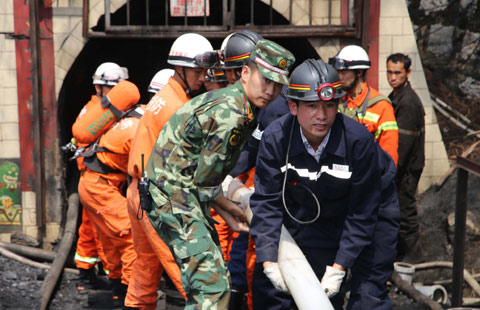Troubled Mideast peace effort compounds US policy woes
Updated: 2014-04-09 10:31
(Agencies)
|
|||||||||||
 |
|
A Palestinian man shouts slogans during a protest calling for the release of Palestinian prisoners held in Israeli jails, in the West Bank city of Nablus April 7, 2014. [Photo/Agencies] |
But seeking to tamp down speculation that Obama might pull the rug out from under Kerry, a White House aide said the president told his national security team on Friday: "I see a lot of senior officials quoted about Kerry and Middle East peace. But I'm the most senior official, and I have nothing but admiration for how John has handled this."
Washington is clearly mindful that abandoning the peace effort now would carry risks, including reinforcing the image of an administration seeking to disengage from the Middle East.
"There's tremendous upheaval in the region and internationally right now. Do you want to add to it?" said Dennis Ross, Obama's former top Middle East adviser. "We don't need to see something we've been investing in collapse."
With the administration moving only haltingly on limited arms shipments to Syrian rebels, some analysts believe a breakdown in the peace process could embolden Syrian President Bashar al-Assad by showing US weakness in the region.
US allies Israel and Saudi Arabia already fear Obama's failure to strike Assad over chemical weapons use last year suggests that war-weary Washington would not have the stomach to use force to prevent Iran from developing nuclear weapons.
There are also concerns in the region that Iran could see troubles in the peace process as a sign that the Obama administration might be desperate for a diplomatic success and that Tehran could then take a tough line against concessions in nuclear talks.
But a senior US official said the administration saw no link between Middle East diplomacy and the Iran or Syria issues.
Even so, fallout for the United States may be limited because Arab leaders and their nations are now more focused on their own internal problems and less so on the Israeli-Palestinian issue once seen as the region's core conflict.
"All Arabs are preoccupied with calls for revolutions and reforms," Joseph Kechichian, a Beirut-based historian, said of the Gulf Arab states who are close to the Saudi ruling family.
But he added: "The Palestinian question will not go away."
Today's Top News
G20 to focus on boosting economy, not Crimea
US slashes Iran's pick for UN envoy
Moscow warns Kiev of 'civil war'
China, Israel vow closer ties
China stresses ban on kindergarten drugs
More small firms to enjoy tax breaks
First 24-hr Beijing bookstore opens
Pro-Russians declare independence in Donetsk
Hot Topics
Lunar probe , China growth forecasts, Emission rules get tougher, China seen through 'colored lens', International board,
Editor's Picks

|

|

|

|

|

|





